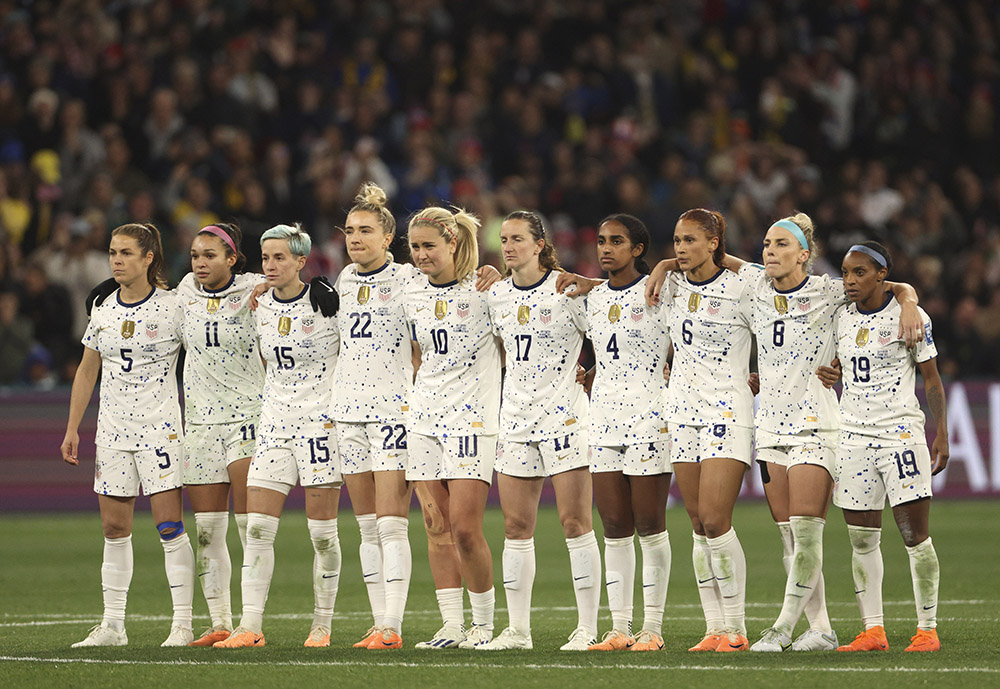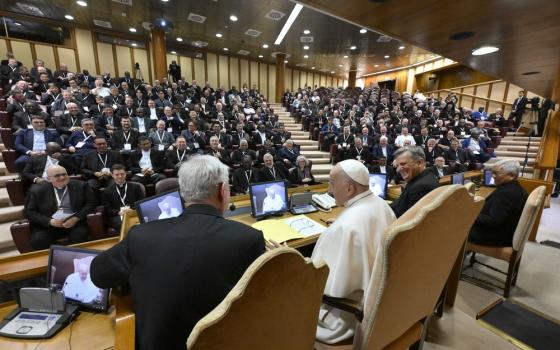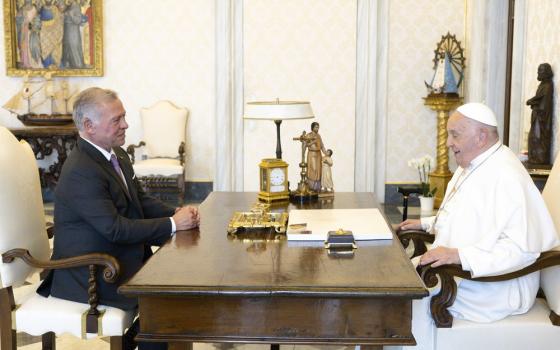
The U.S. team reacts during a penalty shootout during the Women's World Cup round of 16 soccer match between Sweden and the United States in Melbourne, Australia, Aug. 6. (AP/Hamish Blair)
As I watched the swarm of yellow Swedish jerseys jubilantly sprint past the stunned American goalkeeper, I found myself awash with pity for the U.S. national team. Growing up playing elite club soccer in the San Francisco Bay Area, I loved playing the game and I loved what the game provided for me. The inspiring women's team of the late 1990s effectively symbolized the two goods: the joy of the game and the thrill of empowerment.
But as the years went on and my potential became more evident, the more distantly I felt that joy — and not just because of coaches who tried motivating with racial stereotypes. (Allie, would you let that girl steal your 'A' in algebra? Then don't let her steal the ball from you! Come on, Tao!) There was the feeling of always looking over your shoulder, of playing so as to come out on top personally, however the team fared. There were the sports psychologists. I began to look at my soccer upbringing with a jaundiced eye.
I thought I had succeeded in dulling my emotional attachment to the system in my adulthood. Yet here I was, watching the World Cup round of 16 a decade after my last college soccer game, sorting out a host of intense emotions as the camera panned to the American players, their faces each registering somewhere between disbelief and grief.
My friend who coaches girls soccer claimed the American women lacked the hunger to win, that these women did not want it enough. But I was dubious. In fact, noting the frenetic pace at which the Americans were playing, I sensed they in fact wanted it too much, as if straining against themselves with every touch, seeking to move the ball up the field faster than possible, to score more quickly than time allows.
Advertisement
Yes, this is part of the weight of being the favorite. But there is also a uniquely pointed individual burden, emerging from years of training focused on a particular form of excellence — a personal excellence, implicitly communicated to be separable from the destiny of the team.
Don't get me wrong: I don't think the players on the American women's team are selfish or overly competitive. Nothing of the sort. But I do submit that their youth formation had something to do with the nature of their struggles in this World Cup. As girls' soccer has grown more rigorous, so too has the culture of radical individualism, and I believe that culture has more to do with the early exit of the women in the World Cup than any strategic misfire or lackluster performance.
Our training system seeks to develop the most powerful, the most skillful, the most fit players — in short, the most outstanding individuals — and has been tailored to do so at every stage. Great players have emerged, yes, and superabundantly at that. Yet something is sacrificed. In a system preoccupied with fashioning perfect parts, it would be foolish to expect the whole to be greater than the sum.
This general difficulty squares with sociologist Robert Bellah's diagnosis of American culture's deepest ills, especially prominent in the book Habits of the Heart. For Bellah, the "first language" for Americans is the language of individualism; the national moral vision is primarily shaped by the individual's subjective sense of personally rewarding action and growth, while the consideration of a higher call or allegiance to a greater community is left out.
At the heart of utilitarian individualism is the belief that the highest good of the whole is attained when each individual maximizes one's potential. Never mind that economists and philosophers alike have brought this principle in for careful dismantling. Culturally, Bellah insists, we carry forward a nearly unshakable faith in operating according to the focal point of the maximization of individual potential.
What is the upshot of utilitarian individualism if not the idea that we can attain the common good without even considering it explicitly? What is the implication except the notion that the common good will take care of itself?
Something of this American faith stands behind the soccer system in which I was raised: the abiding logic that should the best players be cast together, the team will find its way forward. So we have too often and too simply presumed.
Just like all of us, the U.S. women's national soccer team is called to conversion.
We find the consistent repudiation of this mode of thinking in the Catholic tradition, whether we look directly to Scripture and St. Paul's emphasis upon the interdependence and mutuality of the body of Christ, striving, suffering and growing as one, or to the valuation of the common good in the social encyclical tradition inaugurated by Pope Leo XIII.
Pope Francis consistently invites us to a deeper form of holistic thinking writ large. In Evangelii Gaudium, he offers the principle that "the whole is greater than the part," as he invites his audience to think starting from this all-important whole.
As Francis suggests, such thinking demands effort: "We constantly have to broaden our horizons and see the greater good which will benefit us all."
In so doing, he points out, individuals do not forsake their personal fulfillment but rather attain it from a different direction: "People who wholeheartedly enter into the life of a community need not lose their individualism or hide their identity; instead, they receive new impulses to personal growth."
As the latest articulator of this vision of interdependence and mutual flourishing, Francis' wisdom might provide a guide for the U.S. women's national soccer team. As he championed repeatedly at World Youth Day, the call of the rising generation is to reimagine the world in more relational and unified terms.
For U.S. soccer, what might it mean to center the whole in the development of players and the formation of the national team? What part might players and coaches alike have in this process? And what can girls and young women do to help usher in a transformed ethos? Just like all of us, the U.S. women's national soccer team is called to conversion.
The good news is that such a challenge is often best received on the other side of defeat — the classic "breakdown in order to breakthrough" pattern of transformation. Any good coach will say the same: Our most painful losses become our greatest opportunities to grow. The women's soccer team has broken through before, giving the world a new imagination for what women can be. They inspired my self-belief as a child. At this turning point, they could also lead us all toward the more excellent dream of authentic togetherness.











